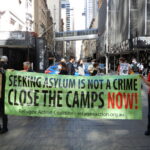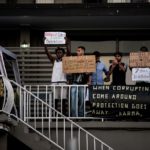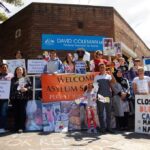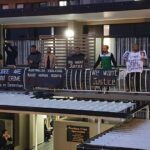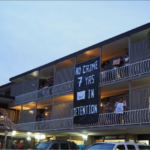Supporting Refugees Made Destitute by Dutton: An Interview With BMRSG’s Brendan Doyle
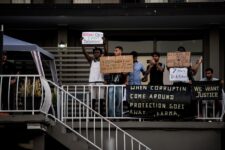
It was clear by August this year that the economy was in deep recession due to the economic downturn caused by the COVID-19 pandemic, with the number of unemployed people having risen to over one million since the societywide lockdown.
And it was in August as well that the Department of Home Affairs decided to escalate its final departure policy sending out dozens of letters to refugees who’ve been living in the community long-term, informing them that they were being placed on final departure bridging E visas.
The notice from the department further informed that this entailed ongoing financial support being withdrawn in three weeks’ time, while there was a requirement to vacate long-term housing within a fortnight.
But not to worry. These former offshore asylum-seeking detainees – who were transferred to Australia for medical reasons prior to Medevac – were also being granted the right to work.
So, at a time when jobs are scarce, these people who have been denied working rights for years are suddenly being pushed into a job market where they have no employment history, whilst simultaneously being made penniless and homeless.
Another act of inhumanity
Dutton launched the final departure policy in August 2017. The then immigration minister framed it around these former offshore asylum-seeking detainees conning their way to Australia and then using some “tricky legal moves” to prevent themselves from being sent back to the island gulags.
Back then, the government began applying the final departure policy to single refugees and asylum seekers. But, in this time of unprecedented crisis, Dutton’s now unleashing it upon families, children and couples.
There were around 840 refugees and asylum seekers living in long-term community detention that were in the scope of the policy’s firing range in August. And most of them have been assessed as refugees by government processing and all of them have been in legal limbo for around seven years.
Destitution or community support
Back in 2017, it was hard to grasp how the government could simply make single refugees destitute within the Australian community. And now, it’s even harder to comprehend why Morrison and his cronies would choose a time of pandemic to make vulnerable families homeless.
Asking people who have fled persecution in their homelands to return to them as these nations are being hit by the COVID-19 crisis doesn’t seem rational, and neither does expecting these people to find employment in a job market with thousands of local citizens scrambling for positions.
So, then it’s simply left up to the charities and support groups.
The Blue Mountains Refugee Support Group has been providing assistance to refugees living within the community since 2001. And over recent months, it’s noticed that the situation of those it’s been assisting has become more desperate in line with the extension of the final departure policy.
Sydney Criminal Lawyers spoke to BMRSG committee member Brendan Doyle about the change in circumstances he’s been noticing, the new low that is the final departure policy, and how at the turn of the century many believed this level of inhumanity towards refugees would be over by now.
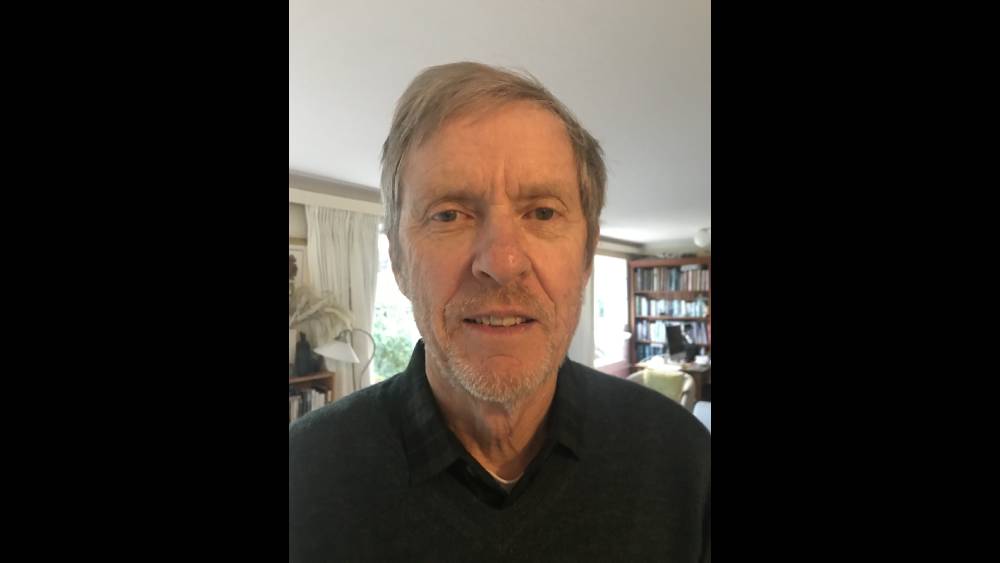
Firstly, since August this year, the government has stepped up its program of placing refugees and asylum seekers living long-term in the community onto final departure bridging visa E.
This means notifying them that their accommodation and financial support will be taken away within weeks.
Right now, the policy has been broadened to include those who were formerly exempt from it. Brendan, can you explain what’s been occurring over the last couple of months in regard to this?
This has been described as a war on refugees, and I’m afraid that it’s pretty close to the truth.
Certainly, that’s so, if we judge from the refugee and asylum seeker households that we’ve been supporting in mainly western Sydney.
The situation has been exacerbated by COVID-19. This policy means that people are suddenly being asked to apply for jobs, whereas before they were getting some financial support from the federal government through Centrelink payments.
But those payments have been cut. And the government has said to these people that they can go and get a job.
I’ve got a list of eleven families that we’ve been supporting in western Sydney for several years. Suddenly, these families are all needing rental support. And this has only happened within the last few months.
There’s a household that we’re paying $500 a month in rental support. Another family is being given $350 a month, and another $400 a month.
So, this is a crisis of homelessness, really. It’s going to come to that if people can’t pay the rent.
So, you’ve been providing these families with financial assistance prior to the government taking away their support?
Yes. Most of them. It was smaller amounts, and, in most cases, it wasn’t rent. It was often help with utility bills.
But, over the last several months, I’ve been aware of families asking for food vouchers, so they can go to the supermarket and get enough food to put on the table. They’re doing it tough.
The federal government policy is to tell these people they are on the final departure visa. And you can imagine what that can do psychologically.
These people have escaped persecution in their home country, because they had to. They came here, and then they’re now told they’re on a final bridging visa.
“You won’t get one after this. You are expected to return to the country from which you fled for fear of persecution,” they’ve been told. And in many cases, these people fled through fear of their lives.
It’s just going from bad to worse, in particular with Home Affairs and Dutton, but also immigration.
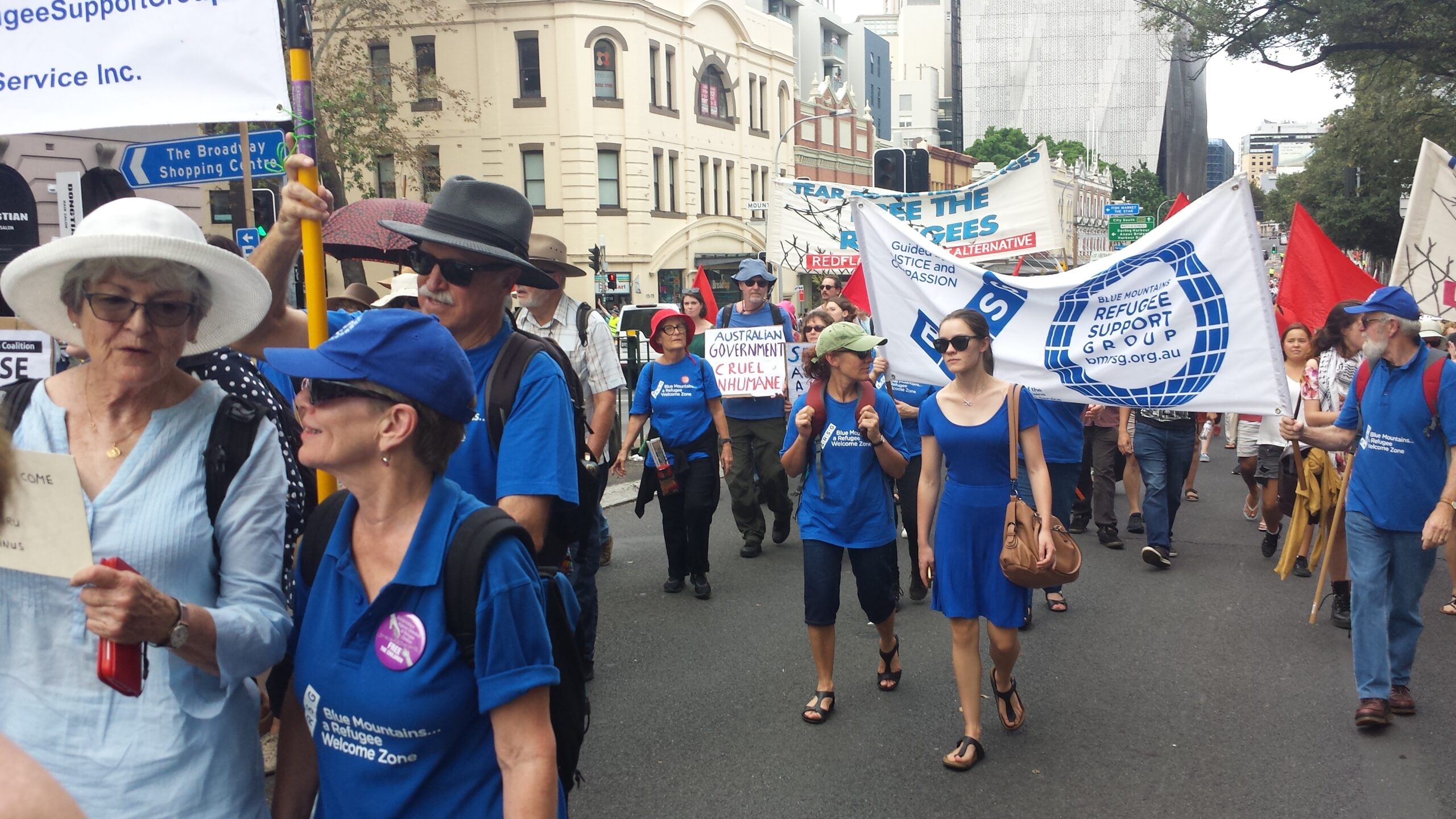
This final departure visa policy commenced three years ago. At that stage, it was confined to single adults, but now it can include children and families.
These are people who have been living in the community long-term. They’ve fled their countries and made it clear that they can’t return.
That’s right. And most of them have been found to be genuine refugees by the government’s own processes.
So, how can our government simply make these people destitute within the broader community?
Because they can, and they don’t care.
They have been providing much-needed economic support to Australian citizens. That’s what should be happening. JobKeeper and JobSeeker should be there for those people.
But the government has continued to exclude people seeking asylum and refugees from these supports.
In the federal budget, all the headlines were about government spending and tax cuts, but there was nothing in the headlines about the impact on refugees and people seeking asylum. They’re just swept under the carpet.
As you’ve mentioned, your group is assisting those being affected in the local region. Who’s actually being affected? And how are they coping?
I’m partially involved in the financial running of the group. I’ve been working through our finances and have found that eleven of the families we support desperately need to have their rent covered. This is just in the last few months.
If you lose Centrelink, where are you going to go? The government is simply wiping its hands of these people and leaving it to the charities to look after them.
The Jesuit Refugee Service have also had their funding completely cut. They used to get some funding from the government to assist refugees and asylum seekers, but now they don’t have the money to help.
We’ve been around for 20 years, but we’ve never had government funding. We’re a community-based organisation. We’re all volunteers. All of our money is from donations. And I would have to say, we have a very generous community.
We have about 400 active volunteers. Last financial year, we managed to raise $177,000. That’s pretty remarkable. And of that, $71,000 went in rent support up until June. That was a big amount for us.
But, just in the month of June this year, we’ve given $13,000 in rent relief. That’s in one month.
So, if you multiply that for a year, we’re looking at having to raise much more this year. And we’re running out of funds because the federal government has shifted the whole burden onto groups like ours.
With the final departure bridging visa E, these people have been given the right to work as their supports have been taken away.
So, is it really that final? Are these people being told it’s necessary to leave the country? Or are they being told they can stay if they can find work and support themselves?
No. They have been told that they are expected to leave the country. That’s what they’ve been told.
The time is undefined, but the final bridging visa is a six month visa. And they’ve been told that the federal government will no longer support them financially and they should prepare to return home.
And many of these people have been found to be genuine refugees?
Yes. I can’t give you the percentage. But in my book, they’re all refugees.
They’ve all fled their homelands. Most of their homelands are war-torn. Whether they’ve been found genuine to me is just a legal nicety.
The fact is that they’ve fled their country having no option. They’ve come here expecting to be treated well, and they haven’t found that.
These people couldn’t just get a visa and hop on a plane. They had to risk a very dangerous boat journey from Indonesia to Christmas Island.
They may be termed asylum seekers, but to me they’re all refugees. They’re seeking refuge.
The Blue Mountains Refugee Support Group has been around since 2001. In terms of the time you’ve been operating, how would you rate this new approach to refugees compared to what’s come before?
It’s absolutely horrific and totally unacceptable. We just seem to have horrible people in the government running Home Affairs and Immigration. And some of the people in other departments are equally without any humanity or principles.
Our group started with the Tampa situation in 2001. There were people living in the Blue Mountains who said, “This is not right. These people have risked their lives and left everything behind to get on boats in Indonesia and try and reach safety in Australia.”
It was a small group of people, who said, “This can’t go on.” They could see the writing on the wall. They could see it was going to get worse. They wanted to do something and put a call-out in the local paper.
Some of us thought it would be temporary. Once the government sorted out the inhumanity of how it was treating these people it would be all over. But it’s just gone from bad to worse.
So, what does your organisation advocate should be done with these people who’ve been living here with no issues for years on end?
The final bridging visa policy has to be dumped. That’s where the opposition and the crossbenchers come into the picture. They need to get it changed. There’s still time for Labor to oppose this, as it’s so unacceptable.
And lastly, for those in the community who would like to assist the Blue Mountains Refugee Support Group in helping these people being made destitute by our own government, how can they go about doing that?
All they need to do is go to our Blue Mountains Refugee Support Group website. There they will find information about us, what the current needs of the refugees are, and they can then make an instant donation.
People around the Blue Mountains have been very generous over the past few months, since this has partially come out into the open via the Saturday Paper and the Guardian.
So, they can make an instant donation, or they can actually join our group if they want to.


